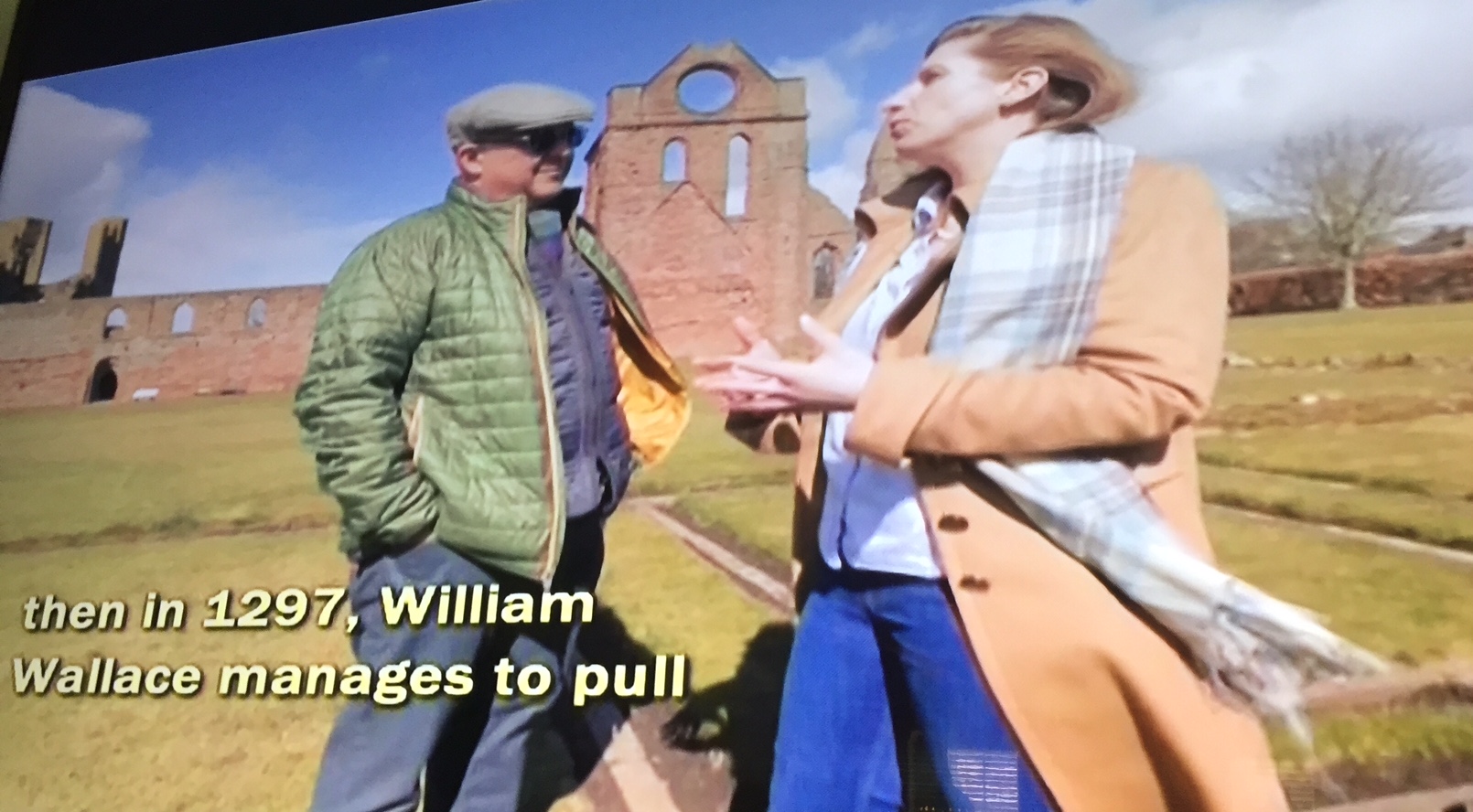
I’ve long found it curious when producers decide a subtitle is needed; those of us in North America addicted to streaming Scandinavian detective dramas might be more than accustomed to reading the bottom of the screen these days (so yes, we now all know what “tack” means), but what about when you’re watching a Travel Channel host talk to someone speaking English in contemporary Scotland…?
Do we really need subtitles, just because it’s an accent that might be a little off our own English register? Continue reading “Subtitles”


 I was at Chipotle this weekend, waiting to order my favorite fast food (crunchy chicken tacos with veggies, heavy on the corn salsa). The man behind me in line spoke fluent English to a child with him, but when it was his turn at the counter, he looked at the young female employee and began ordering in Spanish. The glitch in the plan was that while he was talking to a woman with brown skin (who, according to popular identifiers, might have a better chance of being a Spanish-speaker than others), she was not a Spanish speaker at all; in fact, as she pointed out to him, she was Asian. After a few embarrassing laughs the burrito bowls and extra guac were ordered, and everyone scooted out the door.
I was at Chipotle this weekend, waiting to order my favorite fast food (crunchy chicken tacos with veggies, heavy on the corn salsa). The man behind me in line spoke fluent English to a child with him, but when it was his turn at the counter, he looked at the young female employee and began ordering in Spanish. The glitch in the plan was that while he was talking to a woman with brown skin (who, according to popular identifiers, might have a better chance of being a Spanish-speaker than others), she was not a Spanish speaker at all; in fact, as she pointed out to him, she was Asian. After a few embarrassing laughs the burrito bowls and extra guac were ordered, and everyone scooted out the door.